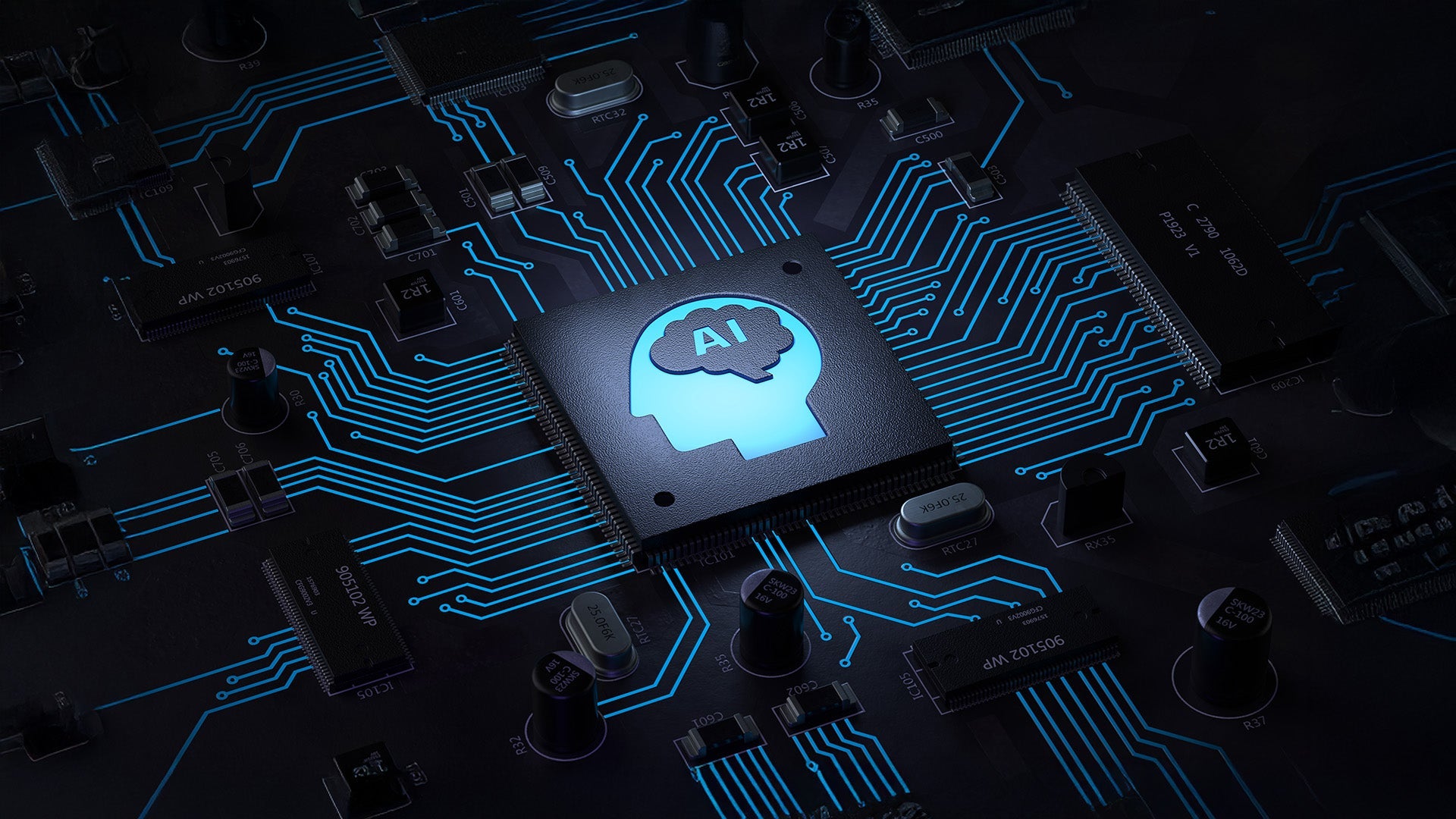
Artificial intelligence (AI) is a revolutionary force reshaping almost every facet of the business industry. According to a 2025 report by the Tech Council of Australia, Australian tech leaders identified AI as the most influential tech trend in the coming year. From automating routine tasks to offering unprecedented insights into customer behaviour, AI’s integration into business processes has transformed how companies operate, compete and leverage business trends.
As machine intelligence continues to evolve, so does the need for professionals who can leverage this technology to drive innovation and growth. This article explores the vital role of AI in business and how pursuing an MBA can equip you with the skills and knowledge needed to thrive in an AI-driven environment. As a business professional, it’s time to ensure you’re not just keeping pace with technological advancements but setting new standards in innovation and leadership.
How is AI being used in business?
The Tech Council of Australia reported that one third of the nation's tech leaders felt that AI presented the biggest opportunity for businesses in 2025. The need for efficiency drives the move towards exploring AI in business, pressing companies to roll out tech upgrades and solutions that offer better customer experiences and a competitive edge. With so many advances in the field, AI is used for a variety of business purposes, from predictive analytics in marketing to AI-driven fraud detection in finance.
Kosala Aravinda, COO of Blockstars Technology, says that companies are increasingly turning to AI to streamline and eliminate repetitive tasks in their customer service departments.
“We’re seeing more and more employees using AI software to book, record and summarise meetings,” says Aravinda, who urges us to consider where meeting files are stored and what happens if the provider encounters a security breach.
“Most people will take the convenience path over security and privacy. However, when it comes to business, trade secrets, NDAs and other legal aspects, data security needs to be considered.”
Other common types of AI in the workplace include chatbots for customer service, machine learning algorithms for data analysis and AI-powered tools for internal process optimisation. These applications of AI are not just transforming operations; they’re setting new standards for what businesses can achieve.
The relationship between AI and business is increasingly symbiotic. AI technologies offer the potential to automate complex processes, enhance decision-making and create new products and services. The trend toward using AI for business signals a shift towards more efficient, innovative and customer-centric operations, underscoring the need for a workforce that’s not just aware of AI but is also proficient in using its full capabilities to drive business success.
AI trends in business
Several AI trends are shaping the future of business, including:
- Predictive analytics: Businesses use AI to predict trends and customer behaviour, allowing for more strategic planning of aspects of the business such as stock control and strategic decision-making.
- Smart infrastructure: AI is at the heart of creating intelligent built environments that improve safety, efficiency and sustainability.
- Augmented reality (AR): AR applications can enhance customer experiences, from virtual try-ons to immersive educational activities.
- Document AI: Companies can streamline data handling by automating data extraction and organisation from documents, enhancing decision-making efficiency.
- Low-code/no-code: Minimal coding simplifies software development, enabling users without deep coding knowledge to innovate and optimise processes.
- AI democratisation: Making AI accessible through end-user technologies reduces reliance on scarce data science talent and closes the skills gap.
- Data sharing: AI aids in structuring and distributing vast amounts of data, enabling deeper insights despite privacy constraints.
- Generative content: AI-driven platforms can create content that rivals human efforts by analysing and mimicking vast data sets.
- Automation and augmentation: Harnessing both technologies allows companies to balance AI-powered automation and essential human oversight for strategic direction.
- AI-driven healthcare: From diagnostics to personalised treatment plans, AI assists in a range of healthcare settings to improve medical imaging analysis, drug discovery and patient care optimisation. This leads to better patient outcomes and reduces costs for healthcare businesses.
- AI in education: Adaptive learning platforms and intelligent tutoring systems use AI to personalise educational experiences and improve learning outcomes.
Generative AI (GenAI) in particular, is becoming increasingly prevalent in Australian businesses. According to PricewaterhouseCoopers (PwC)'s annual CEO report in 2025, 42 per cent of Australian CEOs expressed that GenAI has improved efficiency in their workers' time. 56 per cent of them also anticipate AI to be incorporated into core business strategies within the next three years.
Aravinda adds that AI social media assistants are a popular use case, particularly for businesses racing to stay relevant in the fast-moving social media landscape.
“With the use of AI, marketing teams can automate the creation of videos and translate videos to other languages to open up new markets,” he says. But he cautions that those involved in generating images have to be cautious given the possibility of infringing on another’s intellectual property.
Benefits and challenges of AI in business
As AI becomes more common in business operations globally, it's crucial to balance its benefits with the challenges it brings.
On the one hand, AI can transform businesses by automating tasks and improving customer experiences, leading to greater efficiency and satisfaction. However, its fast growth also presents challenges around data privacy, ethical concerns and regulatory issues.
Benefits of AI:
- Increases efficiency and productivity: By automating simple tasks, AI frees up staff for higher-level, strategic projects.
- Enhances decision-making: Through detailed data analysis, AI enables quicker and more accurate business decisions.
- Improves customer experience: AI’s ability to personalise services can significantly increase customer satisfaction and loyalty.
- Accelerates medicine development: AI reduces the time and expense involved in developing new medicines and healthcare technologies.
- Promotes environmental sustainability: AI’s efficient use of resources can help counterbalance its computational demands by minimising waste.
Challenges of AI:
- Intellectual property risks: GenAI’s lack of transparency could lead to legal issues over copyright infringement.
- Spread of disinformation: AI’s occasional ‘hallucinations’ (which is when an AI system generates content that is not based on real or accurate data) can mislead people, spreading false information.
- Bias and discrimination: Early-stage AI may unintentionally propagate bias, leading to mistrust and societal disparities.
- Data privacy concerns: Poor data quality can lead to incorrect AI outputs, raising significant quality and privacy issues.
- Ethical and regulatory complexities: AI’s rapid evolution complicates ethical considerations and the establishment of effective regulations to mitigate harm.
Integrating AI can also be a challenge for businesses in Australia. Organisations need to know how to use AI effectively in order to reap its benefits. The 2025 PwC report revealed that some of the barriers faced by local CEOs in AI adoption include internal skills and capabilities, a lack of a clear case for investment and the absence of appropriate data and technology platforms.
Navigating the intricate landscape of AI in business requires a careful balance between leveraging its transformative advantages and addressing its potential challenges. As we forge ahead, the key to harnessing AI’s full potential lies in embracing innovation while remaining vigilant about ethical practices, data integrity and regulatory compliance. Businesses must play a role in ensuring a harmonious future where technology and humanity coexist.
AI in Australia: companies using AI in business
A 2024 Australian Industry Group report revealed that 52 per cent of Australian businesses have already adopted AI technologies.
AI’s role in fraud detection is becoming increasingly critical in the finance sector. A standout example is Visa’s Advanced Authorization (VAA) tool, an AI-based real-time payment fraud monitoring solution, which reportedly prevented $714 million in fraud against Australian businesses in a year. Outcomes like this highlight the increasing need for AI to fight financial crimes, especially as the use of digital payments grows.
Thankfully, finance isn’t the only sector reaping the rewards of AI adoption. In an innovative move to combat the rise in telephone scams, Australian researchers have developed Apate, an AI chatbot designed to engage scammers in prolonged conversations, making phone scams increasingly uneconomical.
Here are some other examples of leading companies using AI across their business operations:
Telstra
Telstra has embraced AI to strategically overhaul key areas of operation, which has led to significant improvements in automated service fault detection and resolution as well as customer service. The enhancements include the introduction of ‘AskTelstra’, a generative AI knowledge bot, which enables customer service teams to navigate an extensive database of more than 2000 manuals efficiently. In 2024, the company announced that it aims to improve 100 per cent of its core business processes using AI by 2025.
MECCA
The beauty retail giant MECCA has leveraged AI to bridge the gap between its in-store and online shopping experiences, undertaking a digital transformation that replicates the personal touch of in-store interactions on its digital platforms. By integrating customer data across channels using MuleSoft software, MECCA launched the innovative ‘Miss MECCA’ chatbot. This tool has significantly improved customer support, identifying complex queries for human intervention while efficiently managing routine inquiries with AI. The result is an impressive 75 per cent reduction in chat abandonment rates.
Qantas
In 2024, Qantas announced a multi-million-dollar investment in new technology to enhance its digital channels over the next three years. The company will use AI to optimise workforce and asset deployment and drive continuous improvement across a range of its operations. Planned changes also include a major upgrade to the Qantas app, new features like enhanced baggage and flight tracking and improved updates during travel disruptions. Jetstar will also benefit from new online check-in for international flights and a live update app.
The good news is that it’s not just big brands benefiting from the rise of AI. Smaller businesses are increasingly using AI-driven marketing tools and sales software to promote services, improve customer retention rates and boost their bottom lines.
How upskilling can help you stay ahead
As AI continues to reshape the business landscape, the demand for professionals who can navigate and lead in this new environment is surging. Undertaking an MBA with units focused on technology and innovation can equip you with the knowledge and skills to leverage AI effectively.
These MBA units typically cover essential aspects of AI in business, from understanding its capabilities to strategic application and ethical considerations. This can help you prepare to adapt to AI advancements, drive innovation and future-proof your career. Better yet, by understanding both the potential and the pitfalls of AI, MBA graduates are positioned to lead their organisations towards sustainable growth and innovation.
Below are some examples of units in an MBA program that can help develop your AI expertise:
- Artificial Intelligence Strategies and Enterprise Applications
- Machine Learning in Business
- Responsible Artificial Intelligence
- Artificial Intelligence in Business Practice
- Predictive Analytics
AI short courses
Alternatively, you can explore short courses related to AI. This can be a more flexible and cost-efficient option for many business professionals. Short courses allow you to gain industry-relevant knowledge and skills without a long-term commitment.
You can find various specialised short courses that cover different aspects of AI. For example, the Generative AI for Executives course from Amazon Web Services focuses on the foundational concepts and terminology of generative AI as well as its role in driving business value. This course is catered to executives, non-technical business leaders as well as business and technical decision-makers.
In the AI for Organisational Innovation short course from the University of New South Wales, you can gain the skills and confidence to leverage AI tools within your organisation for automation, productivity and innovation. You can choose to complete this course by attending a two-day in-person session or learning online over three weeks.
Microsoft also offers a short course on how to transform your business with Microsoft AI. You can learn how to use Microsoft's AI tools and applications to improve business operations. The course also covers responsible AI practices.


This course explains generative AI's foundational concepts and terminology and how to drive business value with generative AI. You are introduced to AWS generative AI services and strategies to choose services best suited for your enterprise's use case. Lastly, in this course, you learn the factors you need to consider to get started with generative AI in your enterprise.
- Learn at your own pace.
- No prerequisites required.


Artificial Intelligence (AI) presents organisations with vast opportunity for efficiency, automation, enhanced customer experience, product and service innovation, security and risk management, even decision-making and scalability. Implementing existing AI tools or even developing your own AI products, involves a process of exploration and consideration of the guardrails that must be put in place relevant to your particular organisation.
This course aims to provide a unique perspective of AI as it relates to decision-makers and managers across various functional roles and industries. It does not seek to explain what AI is and how it works; rather explore why and how AI can be implemented in an organisation to spark innovation and achieve sustainable growth.
If you or your team are experimenting with AI, this course is for you. It is designed to explain these key considerations when augmenting with AI to de-risk and set your business up for sustainable success.
- Choose between a 2-day in-person session or an online learning option over 3 weeks.
- Receive a digital badge and 2.00 CEMD points.
- Learn from expert facilitators in data analytics, AI, data governance and cyber security.


In this course, business leaders will find the knowledge and resources to adopt AI in their organisations. It explores planning, strategising and responsibly scaling AI projects.
- Build an AI-ready organisation: Learn how to plan, strategise and scale AI projects effectively while fostering an AI-ready culture for long-term success.
- Leverage cutting-edge Microsoft AI tools: Discover how to integrate Azure AI Services, Microsoft Power Platform and AI copilot applications to create custom AI solutions and transform your business processes.
- Embrace responsible AI practices: Adopt responsible AI principles, governance systems and frameworks to ensure ethical and sustainable AI implementation aligned with your organisation's goals.
Ready to embrace AI for a brighter future?
Change is constant in the business world, so business professionals must always be on the pulse to adapt to AI, new technology and innovative changes. Enrolling in a postgraduate program can be the right move to keep your skills updated. There are plenty of postgraduate business courses in Australia that offer units related to tech and innovation that can help you remain relevant in the job market. Explore what these programs entail and pick one that fits your professional goals.



















